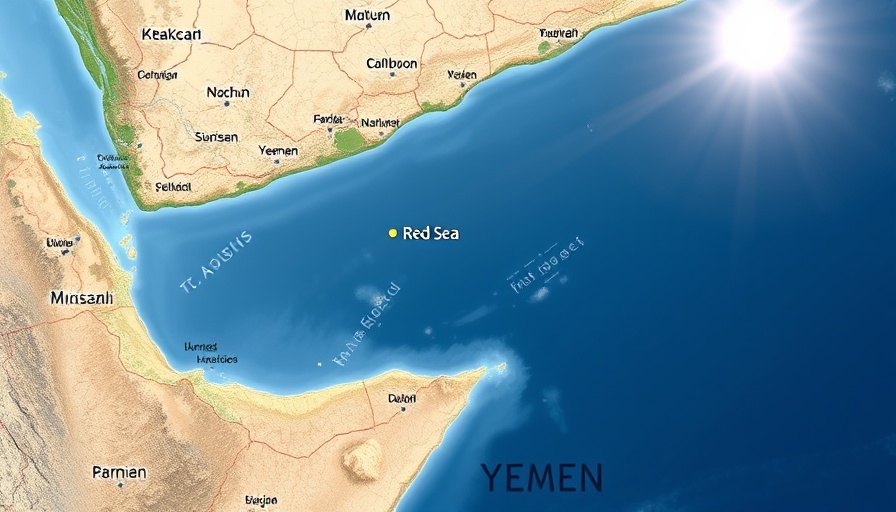
Breaking News: Houthi Attack on Magic Seas Highlights Maritime Security Risks
In a startling escalation of maritime conflict, the Houthi movement, a militant group from Yemen, has claimed responsibility for the sinking of the bulker Magic Seas. The incident occurred approximately 51 nautical miles southwest of Al Hudaydah, a strategic port city in Yemen, when the vessel was ambushed by multiple small craft and unmanned surface vehicles (USVs) whose crews opened fire with small arms and grenades. Reports indicate that while the ship’s armed security team attempted to repel the attackers, the hull was compromised, leading to a fire onboard that forced the crew to abandon ship. Fortunately, all 22 crew members were rescued by a passing merchant vessel, facilitated by the European Union Naval Force ATALANTA.
The Magic Seas, built in 2016 and registered under the Liberian flag, was en route from China to Turkey carrying iron and fertilizers. Its operator, Greece-based Stem Shipping, expressed shock over the incident, with spokesperson Michael Bodouroglou stating, "It struck us like lightning." The nature of the attack is unprecedented in recent times, marking the first targeted strike on a merchant vessel in the southern Red Sea since December 2024, signaling a worrying trend for maritime shipping in the region.
Understanding the Houthi Motivation Behind the Attack
In a statement, the Houthis claimed their operation was motivated by the ship's owner’s violations of a blockade against ports in occupied territories. Al Jazeera reported that the group is responding to what they describe as “repeated violations” by the operator of the Magic Seas. This raises significant questions about the consequences of political conflicts spilling over into global trade and commerce.
The Broader Context of Maritime Security and Trade
This incident underscores the perilous landscape of maritime security in the Red Sea region, especially for vessels affiliated with countries perceived to have interests against Houthi forces. Analysis from maritime risk consultancy Ambrey points to a heightened risk profile for Israel-affiliated ships, as political tensions escalate. The report warns that ships hailing from U.S. and U.K. allied nations may also find themselves increasingly vulnerable to attacks as military actions persist in the area.
Global Shipping at Risk: What This Means for Trade
This situation raises critical concerns about the safety of global shipping routes through the Red Sea, a corridor vital for international trade. The Magic Seas incident not only disrupts individual supply chains but also raises the specter of broader international economic implications, including rising insurance premiums and heightened vigilance among operators.
Looking Ahead: Future Trends in Maritime Safety
With incidents like the Houthi attack becoming more frequent, shipping companies may be forced to reconsider their routes, security practices, and the engagement of armed escorts. The implications for training, maritime policies, and international partnerships could shape the future of maritime operations in the region. Collaborative efforts among nations and the private sector will be crucial to mitigate risks and ensure safer passages for commercial vessels.
Call to Action: Staying Informed and Prepared
As the maritime industry navigates these threats, stakeholders—including shipping companies, insurers, and governments—are urged to stay informed about the evolving security landscape. Investing in enhanced maritime protection strategies and engaging in dialogue about risk mitigation will be essential as we face an uncertain future.
 Add Row
Add Row  Add
Add 




Write A Comment